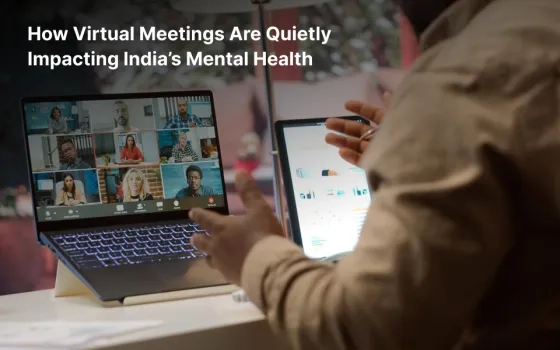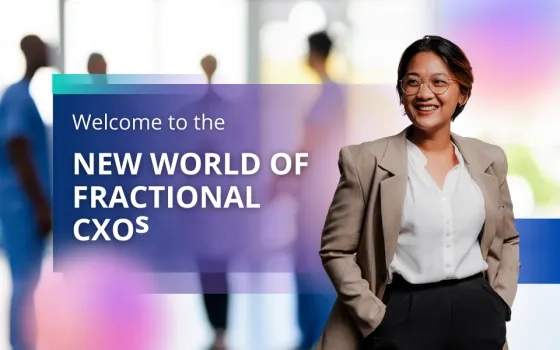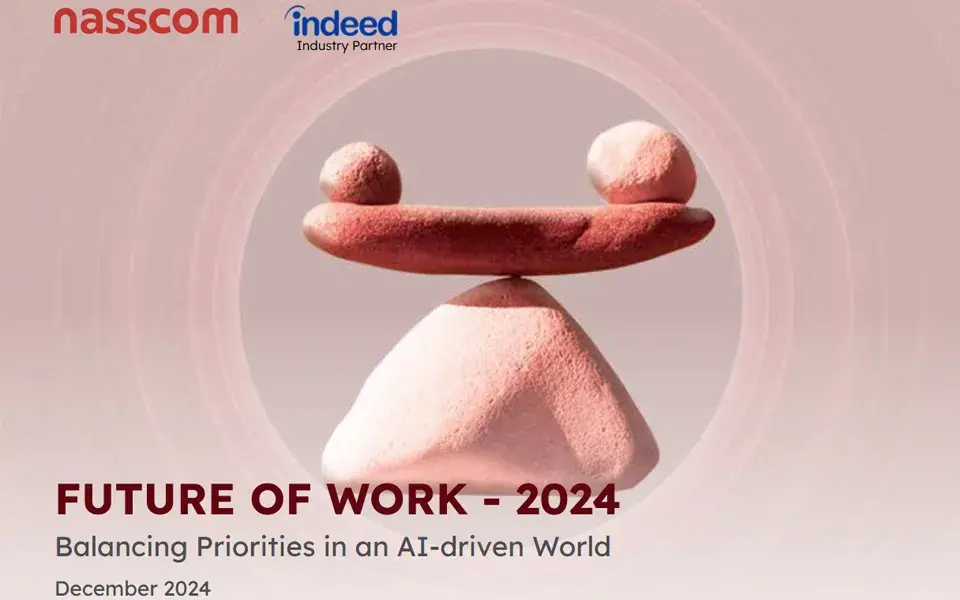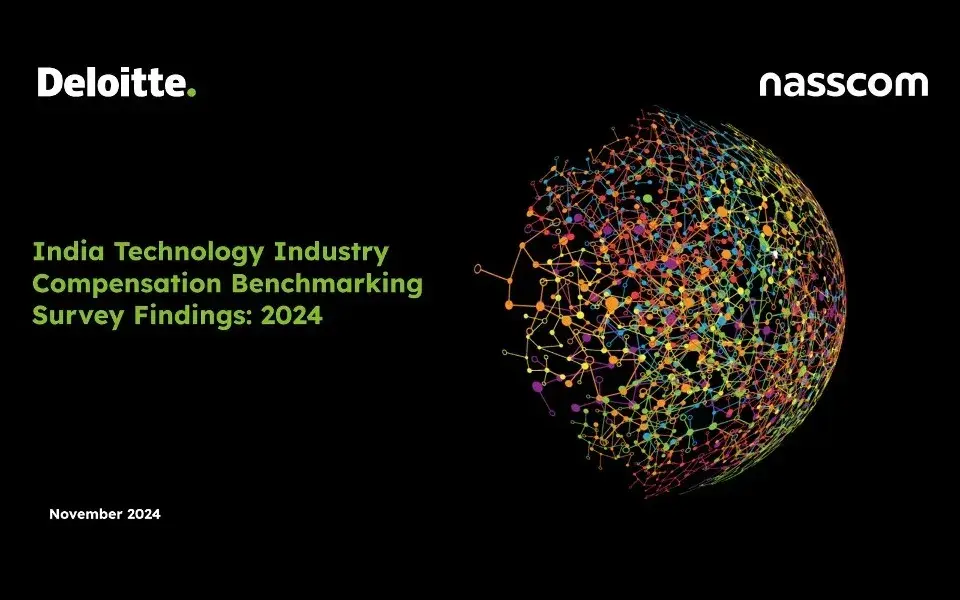Uncertain contours of new work models
After long discourse extolling the virtues of hybrid work model, as you are being cajoled / compelled by your employer to be corralled back in the office, it becomes necessary to scratch the slim and uncertain layers to figure out what lies underneath the visible surface of reinvented work models. More particularly, there are many nuances of work hours and working conditions for which no clear and well-defined answers are forthcoming from the employers. These include changed norms about: regular work timing, mandatory work hours, break and switch off hours, limitation of extended work hours beyond regular timing, mandatory break time, compensatory resting hours, and long hours spent in commute amongst others for various locations.
While the pattern of workers and employers clashes over return to office has been intensifying globally in past few months, there is hardly much effort made by Indian IT companies to sincerely engage with employees and provide a clear sense of contours of new work models. Meanwhile, several studies and publications – including NASSCOM Return To Workplace Survey – Evolving Towards Hybrid Operating Model (Oct 2021)[i] and more recent BCG study Future of Work Implications for India’s Tech Industry (June 2022),[ii] clearly underline the inevitability of evolving hybrid model with clear signs of its increased adoption by the industry.
Inherent disequilibrium of global delivery construct
In its 5 decades impressive evolution journey, global delivery construct of Indian IT/ITS industry (in all its variations and branded trademarks of individual companies) has been the mainstay of the industry’s phenomenal growth. At a time, IT companies are pushing forward the idea of unevenly designed contours of new work models - remote/ virtual / WFA/ location agnostic on standalone basis or in any combination of fix-office centric operations, it becomes critical to recalibrate structural lacuna for addressing inherent behavioural bias:
- Lopsided onsite-offshore model operating in front-office/back-office setting with India based employees presumed to be available at the beck and call of posited superior onsite peers.
- Agile delivery or traditional model, offshore team are less actively involved in the key project decisions, communication or client facing interactions.
- Presumed unlimited flexibility of India-based employees’ work hours - inherently shows complete disregard to local time-zone specific working hours – adding unnecessary stress on routine basis.
The ill-effects of in-built disequilibrium in working space and team influence for India based employees play out in multiple scenarios on day-to-day basis. It can be your elaborately planned family engagement going for a toss, as you receive an extra-friendly call from onsite peers on Friday evening about a bid proposal to be responded by coming Monday and your urgent involvement to complete its unfinished sections. Possibly, your friendly onsite peer also informs casually that s/he is travelling during this long weekend and you should not hesitate to reach him/her during the weekend for any input. Or, while you are on the verge of calling the day off after an intense day, an innocent looking mail pops up informing you that a project call with your onsite team or a discussion with customer manager is slated in next few hours. It can have another variation of long grave hour workshop with clients or partners, where you are a mandatory participant (in advised listening mode). The moot point is that offshore office appearing more as a shadow protectorate, sensitive balancing of team dynamics, and equitable sharing of work responsibilities becomes an equally important ingredient of the recalibrated work policies in skewed global delivery models of Indian IT Industry
Unlimited flexi-working hours and no commensurating recompense
The serious question is: do Indian IT companies really consider the need of considerate policy formulations to enable global time zone sensitive work hours, which can save India-based employees from unnecessary stress and extra elongated work hours. In some situations, a typical work day routine maps with Australia engagement at one end and US West Coast/Pacific at other side. For different reasons of legalities and organizational culture, workhours policies of most of IT companies have been deliberately left unclear and less specific. Beyond sugar pill of hazy flexi-working in some cases, the term or concept of overtime and overtime allowance are dreadfully avoided. Though, extended work hours beyond regular timing after cloaking prescribed few hours, few IT companies show generosity of considering a stipulated reimbursement amount for meal and travel cost. Ironically, pittance for meal allowance could possibly fetch you measly crumbs of vadai or vada-pav after intense search expedition in your locality, certainly it cannot cover realistic recompense even for bit of cookie or snacks over a leisurely cup of coffee, forget about any expectation about commensurating honorarium to your extra stretch and devoted contributions. As usual, it comes with a tag of subject to your manager’s approval, who might have more interest in discouraging such reimbursement practice by employees for project profitability factors. More so, there could be motivated reasons for routinely disallowing such expenses incurred by the employees for the purpose of example setting considerations.
Dilemma about deprived overtime allowances
With a rudimentary view of average India based employee spending just 1 hour extra per work week beyond regular timing, overtime allowance at a premium of 60% over regular wages bring an eye-opening figure. Even if 50% of 5 million strong IT/ITES industry employees are counted, back of envelope calculation indicates employees are being deprived of annual overtime allowance by IT companies to an extent of INR 10,667 crore (assuming 45 extra hours beyond regular timing for an employee in a year with average CTC of INR 12 lakh per annum). To see it in a realistic perspective, it is ~ 44.8 % of combined Q4 22 reported net profit of top 5 IT companies – TCS, Infosys, HCL, Wipro and Tech Mahindra.
Does it need any extra explanation as why empathy-coating phrases alone do not inspire confidence and trust amongst employees? Historically troubling issues in global delivery models concerning to India based employees and cross-cultural sensitization cannot remain persistently swept underneath the carpet. While IT companies have been driving agenda of new working models, it must have unqualified commitment to equitability and fairness for the employees – both offshore and onsite. Besides emphatic focus on reducing work stress, burnout issues, it must provision for reasonable work hours and working conditions – including fair wages and overtime allowance for any extra effort on routine or exceptional basis.
Way forward: Transition to new working model
Employees certainly do not remain impervious to the evolving reality of the business ecosystem and its wide influences across all areas of organizational existence. In a sane and sensitive setting, employee expectations and financial costs of the companies cannot be rigidly counted as mutually exclusive options – rather a fine-tuning of balancing optimum can be explored for aspired benefits of all involved stakeholders. It fundamentally requires a drastic shift in employers’ mindset – changing unilateral decisions, one-directional communication and evasive overtones. Anchoring of the mature sensibility is the must to sustainably thrive in an uncertain ecosystem. So is authentic sensitivities and inviolable urge for fair play and transparency without dilution and diminution. The bigger question is – are employers ready to take genuine steps toward the makeover for new working models with better employee engagement and a purposeful journey together.
Image source: https://www.dreamstime.com/ Copyright of the owner duly acknowledged.
Disclaimer: The author is an employee of Tata Consultancy Services Limited (TCS). The opinions expressed herein are of author’s own and do not reflect those of the company.






























